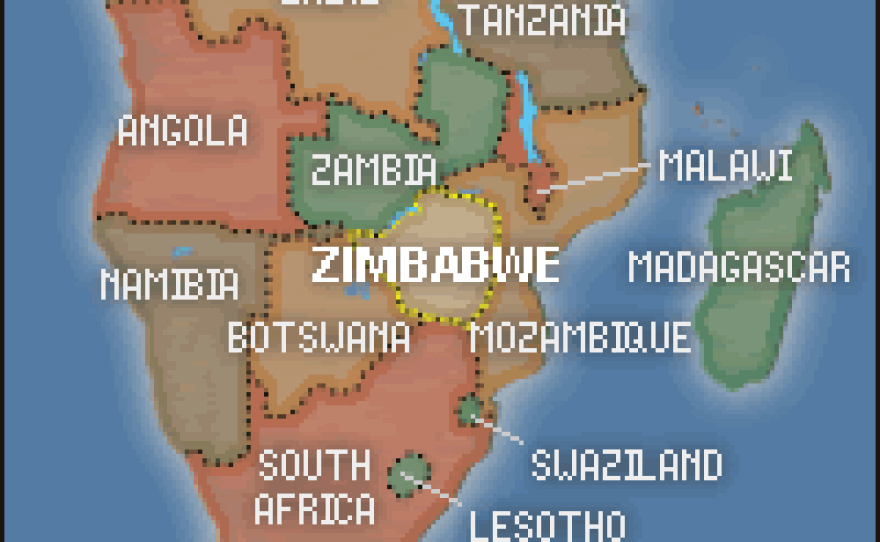
Over the past two decades, poverty rates in every region of the globe went down -- except in sub-Saharan Africa, where war and disease have hampered development. But dictatorial leaders, who cling to power as their countries crumble, are also to blame.
No place is that more evident than in Zimbabwe, where President Robert Mugabe has overseen the downfall of one of Africa's most promising nations.
During Mugabe's first two decades in power, Zimbabwe grew into one of the most prosperous nations in sub-Saharan Africa. Its beef was prized in specialty shops in Europe. Its tobacco farms generated more than $7 billion a year in sales. Literacy rates were some of the highest in the developing world. Zimbabwe still had problems, but compared with the rest of Africa, things were going relatively well.
But in the late 1990s, things started to fall apart.
The tipping point was the disclosure that allies of Mugabe had looted a pension fund for war veterans. When the veterans demanded compensation, Mugabe told them to help themselves to white-owned farms.
"There was no need for things to go the way they did, given that government was declaring a policy on land," says Jonathan Moyo, who served as Mugabe's information minister during the height of the chaotic land-reform movement. Moyo has since fallen out of favor with Mugabe and is now one of the president's harshest critics.
Zimbabwe's violent land-reform program drove most of the country's white commercial farmers off their land. Many of the farms ended up in the hands of Mugabe's allies, including, at the time, Moyo. Other farms disintegrated into chaos.
Moyo says the farm invasions, which included the killing of white farmers, were orchestrated by Mugabe.
Land reform was not a spontaneous uprising by black peasants, as Mugabe likes to portray it, Mayo says. The movement which destroyed the country's agricultural economy was, in fact, government policy, the former minister says.
By 2003, Zimbabwe was facing shortages of food, fuel and foreign currency. In the capital Harare, lines of beat-up cars stretched for blocks outside gasoline stations. Some people had been waiting for days to get fuel.
Zimbabwe's fuel shortage was driven in large part by the government setting the price of gas at 20 cents a gallon and refusing to raise it. Price controls also caused shortages of most staple foods.
Ever since land reform, Zimbabwe, which used to be the regional breadbasket, has been unable to produce enough food to feed its own people.
And it isn't just agriculture that Mugabe's regime has driven into the ground. Schools, hospitals and sewage-treatment plants are falling into disrepair.
After Zimbabwe's urban centers voted heavily against Mugabe's ruling party in 2005, the government launched an urban-cleanup campaign that destroyed the homes and businesses of about 700,000 people.
This year, inflation has risen above 1,000 percent. John Robertson, an economist in Harare, says the country's hyper-inflation is being driven primarily by the government borrowing money to cover recurring costs such as wages and operating expenses.
Like a shopaholic bingeing on credit cards, Zimbabwe is frantically digging itself deeper and deeper into debt.
Copyright 2022 NPR. To see more, visit https://www.npr.org. 9(MDAzMjM2NDYzMDEyMzc1Njk5NjAxNzY3OQ001))








